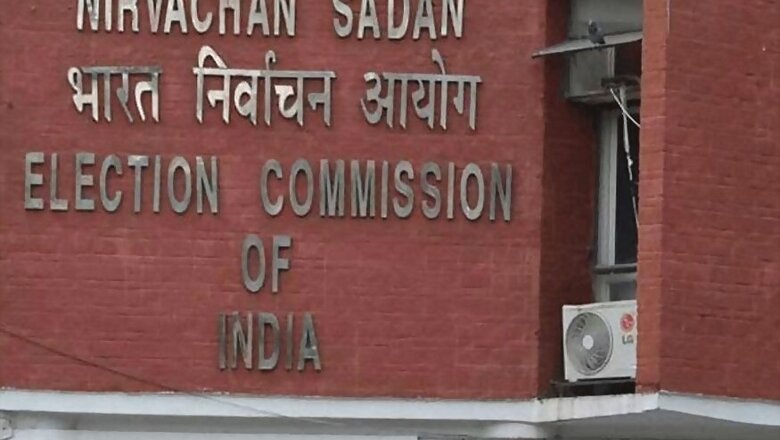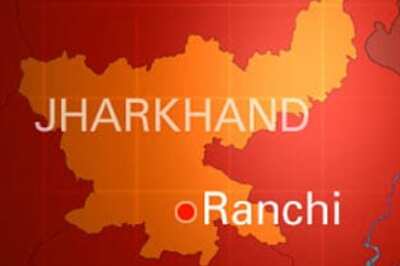
views
New Delhi: The Centre has opposed a plea in the Supreme Court seeking to confer the rule-making authority on the Election Commission, on the lines of the apex court, to empower it to make election-related rules and code of conduct.
In an affidavit filed in the top court, the Ministry of Law and Justice has said that no change is required in the "existing regime" and the essential legislative functions cannot be delegated. The ministry has sought dismissal of the plea which has also sought steps to provide an independent secretariat to the Election Commission and declare its expenditure as charged on the Consolidated Fund of India on the lines of Lok Sabha or Rajya Sabha secretariats.
Regarding the plea for a direction to the Centre not to remove two Election Commissioners from their office, except in a similar manner and grounds provided for removing the Chief Election Commissioner (CEC), the government has referred to an apex court verdict and said the independence of election commissioners was "guaranteed" and no change was required in it. The ministry said the prayer to confer rule-making authority to the poll panel was "vague" and made it clear that the Law Commission has not made any such recommendation.
"It is submitted that essential legislative functions which consist of determination of the legislative policy, cannot be delegated. Delegated legislation cannot be exercised against the legislative policy of the statute and cannot change the essential features/structures of the same," the affidavit said. "Thus, it is submitted that no change is required in the existing regime, and no grounds have been made out therefor," it said while referring to the constitutional provision empowering Parliament to make provisions with respect to election to legislature.
It also referred to the provision of the Representation of the People (RP) Act which empowers the central government to make rules for carrying out the purposes of the Act after due consultation with the ECI. "There is no justification to equate the removal provisions of CEC, who is a permanent constitutional functionary, with that of election commissioners, if any, and the aforesaid prayer may be untenable," it said.
It referred to a 1995 judgement of the apex court and said the court had upheld the constitutional provision which provides for different modes for removal of the CEC on the one hand and the election commissioners on the other hand. The ministry's affidavit maintained that the poll panel was functioning smoothly in an independent manner.
It said the comparison of the secretariat of the Election Commission with those of the Lok Sabha or the Rajya Sabha and also the Supreme Court was "not apposite". The ECI is an independent body meant to implement the laws made by Parliament regarding conduct of free and fair elections, thus, the ECI cannot be placed at par with Parliament or with this court," it said. It said the prayer made in the plea filed by BJP leader and advocate Ashwini Kumar Upadhyay was a "policy matter" and within the exclusive domain of the legislature.
"The petitioner has failed to show as to how the issue raised in the petition would cover up any deficiency in the existing electoral system or would provide strength to the fundamental rights qua the working of existing electoral system," it said, adding that the plea was not maintainable. Earlier, the Election Commission had told the apex court that they have proposed that rule-making power under the RP Act should be conferred on it, instead of the Centre.
In its affidavit filed before the apex court, the poll panel had said they had made a proposal in 1998 to the then Law Minister to amend Article 324 of the Constitution which deals with its powers and functions. The Centre and ECI had filed their affidavits after the apex court had on February 19 sought responses from them on the plea seeking treatment of two Election Commissioners on par with the CEC in the matter of removability.


















Comments
0 comment